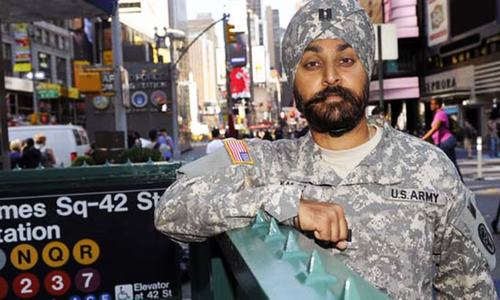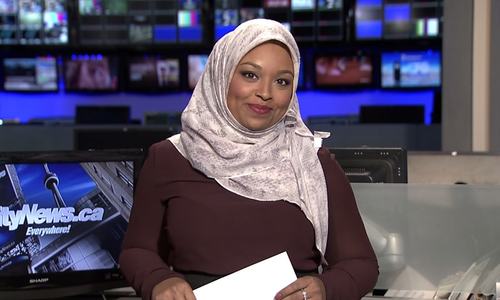The US army has taken new steps to make it easier for Sikhs, Muslims and other religious minorities to obtain approval to dress and groom themselves according to their religious customs while serving in the military, a spokesman said on Thursday.
Army Secretary Eric Fanning, in a memorandum signed this week, revised the uniform policy to set appearance standards for people seeking religious accommodations to wear beards, turbans and head scarfs.
The new rules also enable brigade-level commanders to approve the religious accommodations, an authority that previously rested with the army secretary. Denial of a religious accommodation may be appealed as high as the army secretary.
An approved religious accommodation will continue throughout the soldier's career and may not be revoked or modified without approval of the army secretary, the memo says. The accommodation will not affect job specialties or duty locations, except in a few limited cases, the memo says.
“Our goal is to balance soldier readiness and safety with the accommodation of our soldiers' faith practices, and this latest directive allows us to do that,” Lieutenant Colonel Randy Taylor said in a statement.
The new rules were welcomed by the Sikh Coalition.
“We are pleased with the progress that this new policy represents for religious tolerance and diversity,” said coalition Legal Director Harsimran Kaur.
Sikhs have a long tradition of military service in India and elsewhere and have served in the United States as far back as World War One. But uniform reforms after the Vietnam War made it difficult for them to serve without violating the tenets of their faith.
The new rules permit religious accommodations for beards, but they may not be longer than 2 inches unless rolled or tied up. Soldiers with a religious accommodation may wear a turban or under-turban known as a patka.
Soldiers with religious accommodations still must be able to wear combat helmets and other protective headgear and must modify their hairstyles to achieve a proper fit.
The new rules allow head scarfs, or hijabs, for Muslim women. They must be of a similar colour to the uniform and be free of designs or markings, unless they are camouflage and worn with a camouflage uniform.
Hair grooming rules have been amended to allow for braids, cornrows, twists or locks, the memo said.












































